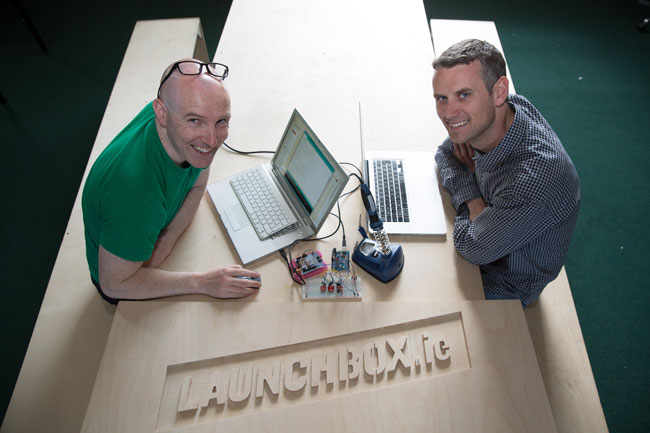LaunchBox, Trinity’s three-month-long business accelerator programme, is set to launch a new scheme to encourage more female students to get involved in entrepreneurship in Trinity.
The pilot scheme, which LaunchBox hopes to implement in January, will consist of a communications campaign aimed at encouraging female students to get involved in entrepreneurship as well a mentoring programme to support them throughout their project.
The mentoring programme will consist of one-to-one meetings between female students and their mentors, with plans for the meetings to be held monthly over the course of the programme. It will also include other networking events open to all participants of the mentoring programme.
The pool of mentors will be drawn from across the business world, not just Trinity graduates. Companies such as professional services firm Accenture have been approached to participate.
The communications campaign will feature female alumni of the programme giving their positive experiences of the programme, while the mentoring programme will seek to provide female students with a network of successful female entrepreneurs who can support them in the early stages of their startup.
“Traditionally, Launchbox has seen far fewer female students both applying and then getting through to the programme”, according to LaunchBox Programme Co-Ordinator, Alison Treacy, speaking to The University Times. The new measures seek to redress this imbalance and increase the numbers of female students using the incubation programme.
LaunchBox hopes to fund the initiatives through a grant from Trinity’s Equality Fund, though at the time of publication, they have not yet heard whether they have secured this funding.
Increasing the number of female applications, Treacy hopes, will “automatically” increase the number of women who get onto Launchbox.
Treacy added that an increase in the number of female students will add to the “dynamic” of the programme and make the startup community in the university more representative of the real world. As Treacy noted: “I think that’s more normal, you see that everywhere: in your lecture theatre, in your student societies, so why when you go to a startup is it a case of “oh I’m one of six women in a room of 50?’”.
“The lack of gender diversity is making the problem worse and worse as we go forward”, Treacy said. “It’s very intimidating to walk into a networking session where you’re one of four women. It is easier when it’s 50/50.”
Launchbox hopes that by encouraging more women to get involved, it can better achieve its goal of producing “the most successful startups and a generation of entrepreneurs that would go out change the world”. Currently, Treacy said: “We don’t feel like we’re getting the strongest candidates forward.”
Many of the problems LaunchBox identified as barriers to women, through both focus groups with students and more general studies on women in the workplace, are reflective of broader social trends. For example, it was highlighted that women are often less willing than men to self-identify as entrepreneurs. They may often feel as though their skillset is not yet sufficient to enable them to apply for programmes like Launchbox.
“Traditionally, when you ask someone to name a famous entrepreneur they almost always say Mark Zuckerberg, Bill Gates, Steve Jobs, all of whom are men”, said Treacy, “and I think there is something off putting about that”.
There is often a feeling that corporate environments are “aggressive” and male dominated, according to Treacy: “I think there is something off putting about the idea of putting yourself forward as the next Wolf of Wall Street, there is this kind of awful caché sometimes associated with it.”
Treacy hopes the scheme will help to redefine what it is to be an entrepreneur, allowing it to be a more inclusive concept, “so that students can self identify with a much broader definition”.
Overall, Treacy is hopeful that the scheme will contribute to a growing gender equality in the world of startups: “It won’t always be like this, but in order to generate the same dividends, we know we need to work a little bit harder at the beginning to get women in.”







